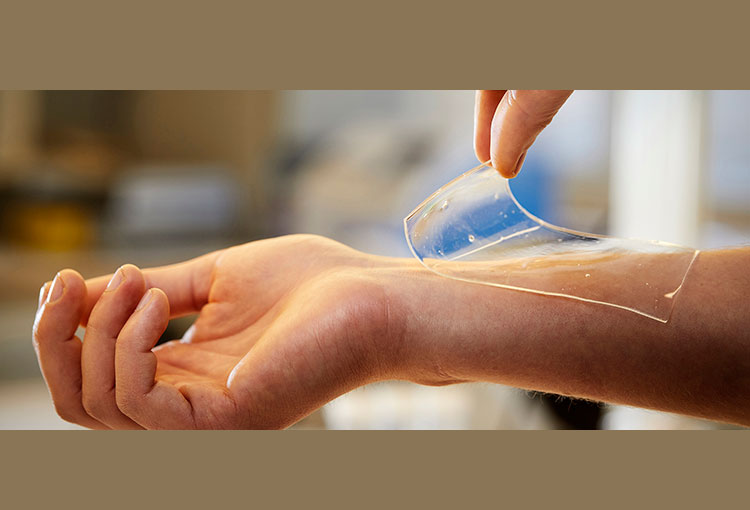
Researchers at Chalmers University of Technology, Sweden, have developed a new material that prevents infections in wounds. The new material, a specially designed hydrogel, works against all types of bacteria, including antibiotic-resistant ones. This innovation offers great hope for combating a growing global problem.
Read more New Wearable Device Treats Antibiotic-Resistant Infections And Wounds
The World Health Organization describes antibiotic-resistant bacteria as one of the greatest threats to global health. To deal with the problem, there needs to be a shift in the way we use antibiotics, and new, sustainable medical technologies must be developed.
“After testing our new hydrogel on different types of bacteria, we observed a high level of effectiveness, including against those which have become resistant to antibiotics,” says Martin Andersson, research leader for the study and Professor at the Department of Chemistry and Chemical Engineering at Chalmers University of Technology, reports Chalmers University of Technology.
Research and development of the material has been ongoing for many years at Martin Andersson’s group at Chalmers, growing in scope along the way, with a particular focus on the possibilities for wound care. The results have been published in the journal ACS Biomaterials Science & Engineering.
The main purpose of the studies so far has been to explore new medical technology solutions to help reduce the use of systemic antibiotics. Hospital-acquired infection is a life-threatening condition that is increasing in incidence worldwide.
Mimicking the natural immune system
The active substance in the new bactericidal material consists of antimicrobial peptides, small proteins which are found naturally in our immune system.
“With these types of peptides, there is a very low risk for bacteria to develop resistance against them, since they only affect the outermost membrane of the bacteria. That is perhaps the foremost reason why they are so interesting to work with,” says Martin Andersson.

Researchers have long tried to find ways to use these peptides in medical applications, but so far without much success. The problem is that they break down quickly when they come into contact with bodily fluids such as blood. The current study describes how the researchers managed to overcome the problem through the development of a nanostructured hydrogel, into which the peptides are permanently bound, creating a protective environment.
“The material is very promising. It is harmless to the body’s own cells and gentle on the skin. In our measurements, the protective effect of the hydrogel on the antimicrobial peptides is clear– the peptides degrade much slower when they are bound to it,” says Edvin Blomstrand, doctoral student at the Department of Chemistry and Chemical Engineering at Chalmers, and one of the main authors of the article.
“We expected good results, but we were really positively surprised at quite how effective the material has proven,” adds Martin Andersson.
According to the researchers, this new material is the first medical device to make successful use of antimicrobial peptides in a clinically and commercially viable manner. There are many varied and promising opportunities for clinical application.
Read more Swedish Woman Receives First Dexterous and Sentient Prosthetic Hand
A spinoff company called Amferia AB, developed by the researchers, is working on commercializing the technology.
“Amferia has recently entered into a strategic partnership with Sweden’s largest distributor of premium medical & diagnostic devices to jointly launch these wound care products for the Swedish veterinary market during 2021” says Martin Andersson.











